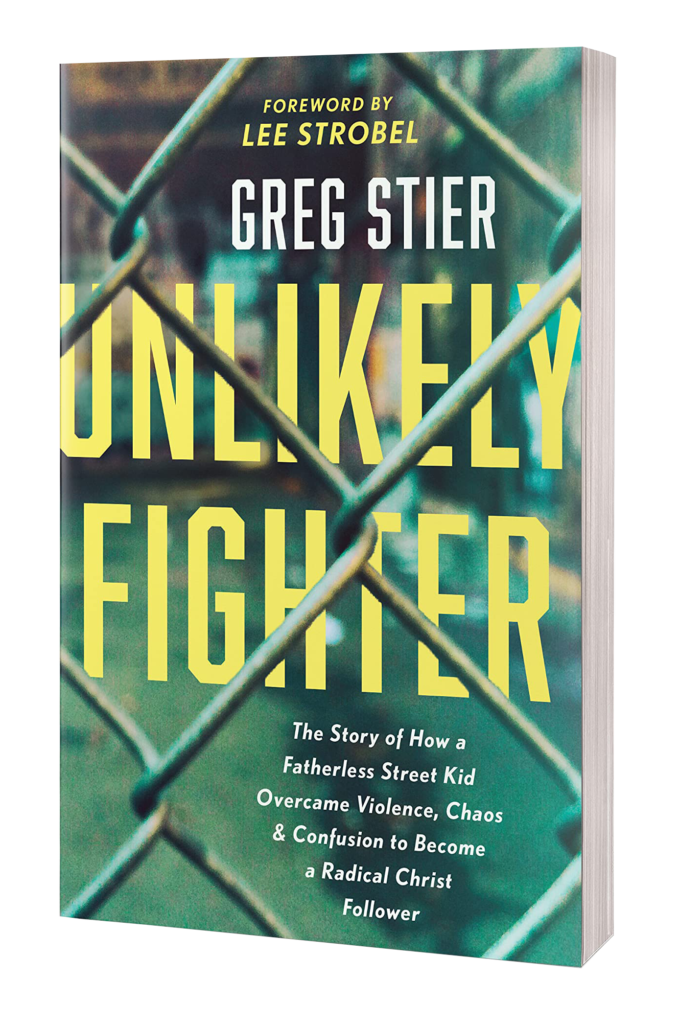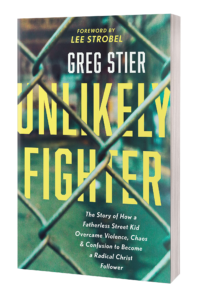 Have you ever given a youth group talk that just stunk? I have and it’s not a pleasant experience. Unlike adults, teenagers won’t pretend to be interested or attentive. They will literally roll their eyes, start talking to the person next to them or just text away about the lameness of your talk (or something else), while you flail for their attention five feet in front of them.
Have you ever given a youth group talk that just stunk? I have and it’s not a pleasant experience. Unlike adults, teenagers won’t pretend to be interested or attentive. They will literally roll their eyes, start talking to the person next to them or just text away about the lameness of your talk (or something else), while you flail for their attention five feet in front of them.
As one who has been preaching to teenagers for more than a quarter of a century I have come to learn some key elements of what it takes to prepare a killer youth talk. Here are they are…
1. Soak the whole process in prayer.
Ask God for the passage, the points and the practical applications. Wrestle with him over the illustrations, transitions and conclusion. God will give you just the right verses and just the right way to deliver the points if you approach him with just the right amount of persistence, humility and faith (James 5:16.)
As someone once said, “We must learn to speak to God about people before we speak to people about God.” As DL Moody once said, “Jesus never taught his disciples how to preach but only how to pray.” Effective preaching starts with effective praying.
Before I preach I tie my shoes. It forces me to my knees one last time. While on my knees I not only tie my shoes but pray once again that God fills me with the Holy Spirit and uses this sermon to change the lives of the teenagers I’m about to preach to in the next few minutes. From beginning to end prayer fuels the process.
2. Find an opening illustration that seizes their attention.
There are openers that tap teens on the shoulder and there are ones that pin them to the wall. I choose the latter. Ask any speech teacher and he/she will tell you that you either win or lose the audience in the first few minutes (and maybe seconds) of your talk. This is especially true of teenagers. That’s why you must craft and re-craft your opening illustration until you are confident it will grab their attention and set your first few minutes with them on a trajectory of transformation.
Jesus was a master at this. He used stories and sayings that riveted his audience in a way that no rabbi ever had. As Matthew 7:28,29 tells us, “When Jesus had finished these words, the crowds were amazed at His teaching; for He was teaching them as one having authority, and not as their scribe.” From his opening to his conclusion Jesus seized the attention of his audiences. If we want to be like Jesus then we must learn to do the same.
3. Use one primary passage and drive it home.
Expository preaching is like a rifle shot. Topical preaching is like a shotgun blast. Both will get the job done, but one’s a little messier. That’s why I love the type of youth talks that lean in on one passage (instead of ten) to communicate God’s Word to teenagers. Too often the topical, multi-passage approach gets sloppy when it comes to exegesis and is less impacting as a result.
It takes a skilled expositor to effectively navigate multiple passages, exegete them accurately and communicate them effectively without playing some kind of games with the text. It can be done but it takes a lot more work and is fraught with danger if the youth communicator is not well trained.
That’s why I usually encourage youth leaders to dive into one primary passage in their youth talks. Of course they can and should refer to other verses along the way. But the most impacting youth talks I’ve heard have had one primary passage that was driven home from beginning to end (2 Timothy 2:15.)
As Spurgeon said, “I always find that I can preach best when I can manage to lie a-soak in my text. I like to get a text and know its meaning and bearings, and so on; and then, after I have bathed in it, I delight to lie down in it and let it soak into me.” Let’s soak in a text of Scripture, let it soak into us and then help our teenagers “cannonball” into it’s refreshing, transformative waters!
4. Gospelize it.
Whatever you are speaking on take it to the cross. From sexual purity to self-image to media choices every subject becomes clearer in the light of the cross and empty tomb of Jesus. We need to relentlessly share the gospel with Christian teenagers because it is the key to the Christian life (1 Corinthians 1:18.) We must relentlessly give the gospel to unreached teenagers because it is “the power of God for the salvation of everyone who believes” (Romans 1:16.)
If you think about it the entire Bible is gospelized. As Colossians 2:16-17 reminds us, “Let no man therefore judge you in meat, or in drink, or in respect of an holyday, or of the new moon, or of the sabbath days: Which are a shadow of things to come; but the body is of Christ.” The Old Testament is the shadow of Jesus and the New Testament is the reality of Jesus. So whether you’re preaching about the shadow or the One who casts it you are preaching about Jesus.
Here’s another way to think about it: The Old Testament points to the person of Jesus. The Gospels tell the story of Jesus. The Epistles explain the theology of Jesus. And the book of Revelation proclaims the victory of Jesus!
Genesis through Revelation is all about Jesus and his good news. Our talks should reflect the same thing! So gospelize them!
5. Challenge teenagers to act on what they’ve learned and show them how.
As James 1:22-25 reminds us, “Do not merely listen to the word, and so deceive yourselves. Do what it says. Anyone who listens to the word but does not do what it says is like someone who looks at his face in a mirror and, after looking at himself, goes away and immediately forgets what he looks like. But whoever looks intently into the perfect law that gives freedom, and continues in it—not forgetting what they have heard, but doing it—they will be blessed in what they do.”
Effective youth talks lift up a mirror for the audience to look into, exposes them to the mess in the mirror and offers a comb, toothbrush and washcloth to do something about it.
If you’re teaching on the importance of spending time in God’s Word challenge them to commit to a regular quiet time. If you’re talking on confession take a few minutes of silence for them to confess their sins to God. If you’re talking on the urgency of evangelism give them the 48 hour challenge to begin a gospel conversation with one person within two days.
But also give them a practical way to put it into practice. In a quiet time talk recommend a devotional for them to read daily. In a confession talk have them memorize 1 John 1:9 and meditate on it that week. If you’re talk is on evangelism have them download the Dare 2 Share app and watch the videos before they begin their gospel conversations.
These are 5 elements to preparing effective youth talks. What are some more?






